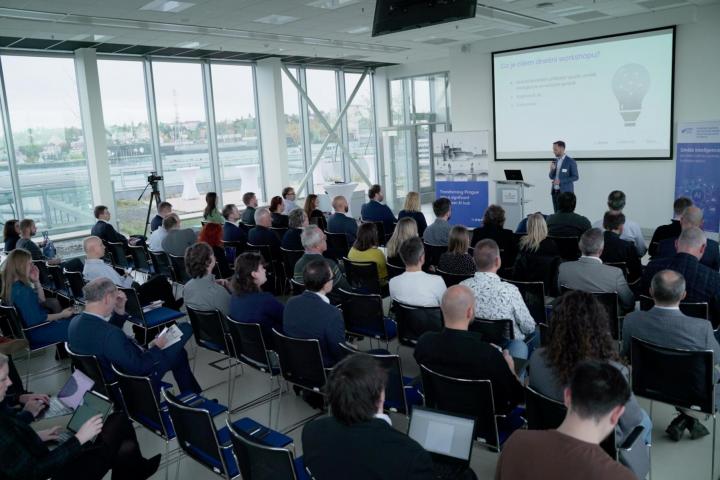At today's event, which took place at the Czech Institute of Informatics, Robotics and Cybernetics CIIRC CTU, specific case studies of digitalization of public administration from the Czech Republic and abroad were presented. It turned out that the biggest challenge is not just the technological solution itself, but the ability to identify suitable projects at the outset to maximize the benefits of artificial intelligence. When implementing and putting innovative solutions into practice, public institutions, as well as companies, are faced with the readiness and willingness of employees to work in the new digital environment and to identify with the need for change.
"The services and programmes we provide in cooperation with other partners involved in the European Centre for Digital Innovation EDIH at CTU are aimed at overcoming barriers to the introduction of AI," says Jaroslav Lískovec, director of EDIH CTU, and adds, "Like other EDIHs in the Czech Republic, we help small and medium-sized companies. At CTU, we also focus on projects for public administration and local government. Thanks to EU funding, we can provide most of our services free of charge."
The developments in recent months around artificial intelligence have been rapid and it is almost impossible to keep up to date. That's why this year's AI Days, which take place in four cities over four weeks in October and November, focused on presenting concrete examples from the field. "We felt that it was important to prepare specialized blocks for public administration and institutions, because they are the ones who have many opportunities for using AI," emphasizes Lukáš Kačena, who heads prg.ai, and adds, "We wanted to show a wide range of solutions that are already in use in public administration or are in the process of being implemented. We think it is useful to share examples of good practice and be inspired by others. And also to present EDIH CTU, which can adapt AI tools to the situation and needs of the public contracting authority. This could be a ministry, a regional authority or even a smaller municipality."
Through tailor-made services, EDIH CTU offers, for example, solutions focused on traffic at local and regional level, where appropriate models can analyse and predict traffic and congestion to prevent accidents or other complications. EDIH CTU also adapts advanced automated systems to help in areas such as maintenance of public assets, planning repairs or preventing infrastructure problems in public spaces. Specific needs then open up for specialized public facilities such as repair, processing or manufacturing sites of state or municipal companies, as well as the military or police force. In addition, for these purposes, interested parties can use the experimental environment of the RICAIP Testbed for Industry 4.0 at the CIIRC CTU, where clients can test the solution before it is put into operation.
"Digital transformation and digitisation of public administration is our main task. Not only does it lead to greater efficiency, improved processes, but it also results in savings. Artificial intelligence is one of the tools that can help us in this process in the future," says Martin Mesršmíd, Director of the DIA. "Since digitalization is being addressed across all levels and components of public administration, the cooperation with EDIH CTU and prg.ai makes a lot of sense for us."
